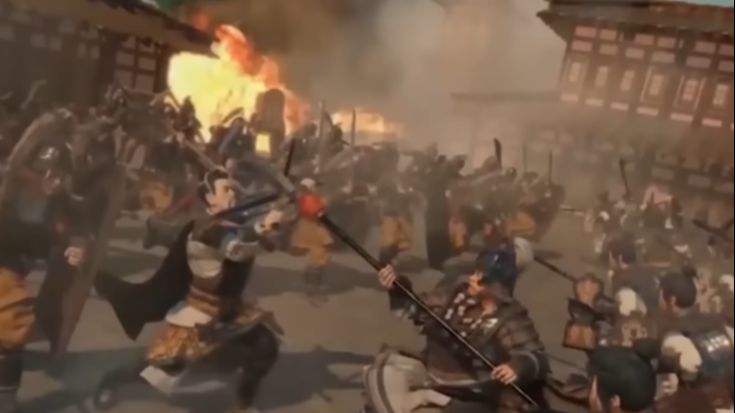For over 400 years, the Han dynasty brought China to great heights with brilliant achievements. From the time of Emperor Wu of Han with conquests that expanded the territory to the refinement of the bureaucratic system based on Confucianism or world-changing inventions like paper and the compass. But by the end of the second century, everything began to shake.
There are several main reasons that led to the weakening of the Han dynasty.
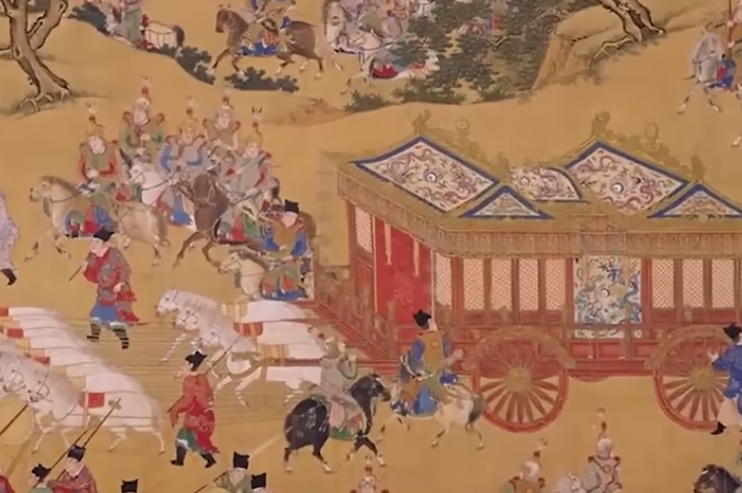
First is the rampant power of the eunuchs. Eunuchs, palace servants, gradually became a force that manipulated the court. The last emperors of the Han dynasty often ascended the throne at a very young age, such as Emperor Ling of Han or Emperor Xian of Han. They were not strong enough to control the court. The eunuchs took advantage of this, engaging in corruption, abusing power, and causing divisions among the real officials. The people called them the bandits in the palace, and the resentment grew. In China, by the end of the second century, the country faced continuous natural disasters, floods, droughts, and pests. The people suffered while the court continued to extort taxes to support the corrupt bureaucratic machine.
In 184, the Yellow Turban Rebellion broke out, led by Zhang Jiao. This was a large-scale uprising of farmers. Those wearing yellow turbans on their heads called for the overthrow of the court. Although it was eventually suppressed, this uprising revealed the weaknesses of the Han dynasty and paved the way for local warlords to rise. Ironically, as the central court lost control, the generals assigned to quell the unrest began to build their own power. Names like Dong Zhuo, Cao Cao, Liu Bei, and Sun Jian gradually became warlords with their own armies, no longer obeying the orders of the court.
In particular, Dong Zhuo, a brutal general, seized the capital Luoyang, deposed Emperor Sha of Han, and placed Emperor Xian of Han on the throne, turning him into a puppet. By 196, Cao Cao, one of the most strategic figures of the time, brought Emperor Xian of Han to Xu Chang, making the emperor a puppet in his hands. Cao Cao did not declare himself king, but in reality, he held the power of life and death. Emperor Xian of Han, despite being called emperor, was merely a faint shadow with no real power. In 220, a shocking event occurred. Cao Cao passed away.
Cao Cao left behind a huge but controversial legacy. He was a military genius, a talented poet, but was also seen by many as a cunning villain due to his ruthless schemes. Cao Cao is famous for the saying "I would rather betray the world than let the world betray me." This saying somewhat reflects his ambition and decisiveness. After Cao Cao's death, his son Cao Pi inherited power. At that time, Cao Pi was just over 30, an intelligent and ambitious man but also very arrogant. Cao Pi did not want to live in the shadow of his father, nor did he want to continue being a vassal of a dynasty that had lost its vitality. Cao Pi saw an opportunity; the Han dynasty was now just an empty shell, no longer capable of ruling the world.
But how to overthrow a dynasty that had existed for over 400 years without being criticized by the people and political opponents?
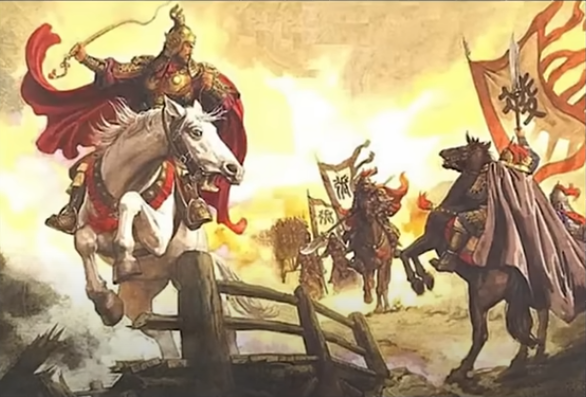
This was the moment when Cao Pi and his advisors launched a sophisticated political maneuver. In ancient Chinese culture, the concept of the Mandate of Heaven was of utmost importance. The Chinese believed that a dynasty could only exist if it had the support of heaven. If that dynasty fell into chaos, the people suffered, or the country was divided, it was a sign that heaven had withdrawn its mandate. A new king must rise to replace it. With the support of advisors like Chen Qun and Sima Yi, Cao Pi skillfully used the concept of the Mandate of Heaven to legitimize the overthrow of the Han dynasty. Thus, Cao Pi began a propaganda campaign.
The close officials publicly declared that the Han dynasty had lost the Mandate of Heaven. They listed a series of reasons: the weakened court, the rampant eunuchs, the starving people, and the country divided by warlords. All were seen as signs that heaven had chosen a new leader for the world. And that person was, of course, Cao Pi. To increase the persuasiveness, Cao Pi also organized religious and prophetic rituals. Soothsayers and historians were ordered to seek heavenly signs to prove that the Han dynasty was finished. Omens such as natural disasters, earthquakes, or even prophetic words were spread everywhere. The people believed that the new dynasty was an inevitable occurrence. This was an extremely systematic ancient advertising campaign.
And the fateful day came. In October 2020, everything was prepared. Cao Pi held a solemn ceremony at the court in Xu Chang, where Emperor Xian of Han was ruling under the tight control of the Cao family. Emperor Xian of Han, not yet 40 years old, was a tragic figure. He ascended the throne at the age of nine, enduring decades of manipulation by warlords like Dong Zhuo, Li Ru, Guo Si, Cao Cao, and Cao Pi. He had never truly held power, and now he faced the final moment of the Han dynasty. During the ceremony, the close officials of Cao Pi took turns stepping up to request Emperor Xian of Han to abdicate for the benefit of the world. They said that the Han dynasty could no longer govern and that Cao Pi was the chosen one to lead the country.
Emperor Xian of Han had no choice. He knew that if he resisted, he and his family could be killed. On November 25, 220, according to the lunar calendar, Emperor Xian of Han officially abdicated, handing the throne to Cao Pi. According to historical records, Emperor Xian of Han wrote an edict of abdication, in which he acknowledged that the Han dynasty had lost the Mandate of Heaven and ceded the throne to Cao Pi. This edict was, of course, drafted by Cao Pi's close associates, but it still symbolically marked the official end of the Han dynasty. After receiving the throne, Cao Pi proclaimed himself Emperor Wen of Wei, establishing the Wei dynasty, marking the beginning of the Three Kingdoms period.
He conferred the title of Duke of Shanyang to Emperor Xian of Han, allowing him to live in Shanyang but now only as a duke. Today, in Henan province of China, Emperor Xian of Han had a peaceful life but was under strict surveillance. Cao Pi also showed leniency by granting land and wealth to Emperor Xian of Han, but it was all just a way to appease the opposition from those loyal to the Han dynasty. After abdicating, Emperor Xian of Han lived a quiet life in Shanyang. He died at the age of 54, with legends saying that he was a skilled doctor, often treating the people and was very beloved by them.
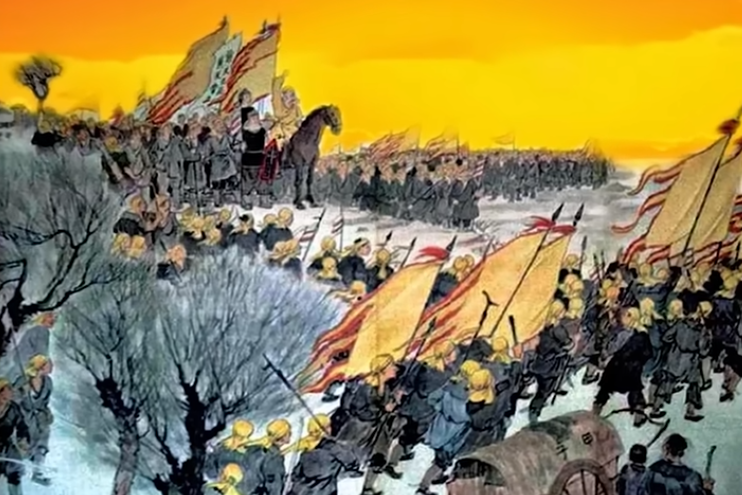
However, there is no clear historical evidence for this. But what is certain is that Emperor Xian of Han lived his final years under the control of the Wei dynasty and had no power whatsoever. He is a symbol of a powerless king born in chaotic times who could not change his fate. Unable to change the fate of the dynasty. The Han dynasty, despite its collapse, left behind a huge legacy. This was a dynasty that shaped the culture, politics, and society of China for centuries. The bureaucratic system based on Confucianism, important civilizations, and the expansion of the Silk Road all began during the Han dynasty.
Even after its collapse, the name Han was still used by Liu Bei, the leader of Shu Han, to evoke the loyalty of the people. The fall of the Han dynasty was not just the death of a dynasty but also the beginning of a period of division. A more distinct beginning was the Three Kingdoms period. Right after Cao Pi established the Wei dynasty, two other powers also rose to compete for the world. Shu Han led by Liu Bei. Liu Bei was a distant descendant of the Han royal family, claiming to be the legitimate successor of the Han dynasty.
With the help of Zhuge Liang and talented generals like Guan Yu and Zhang Fei, Liu Bei established his kingdom in Sichuan, determined to restore the Han dynasty. Next was Eastern Wu, ruled by Sun Quan. Sun Quan inherited the legacy of his father, Sun Jian, and his brother, Sun Ce, controlling the wealthy Jiangdong region. Eastern Wu was famous for its strong navy and river battles like the Battle of Red Cliffs. The Three Kingdoms period was also a time of grand battles, brilliant strategies, and legendary figures. From the Battle of Red Cliffs, where Zhuge Liang and Zhou Yu defeated Cao Cao, to the confrontations between Sima Yi and Zhuge Liang, this was a period full of blood and tears.
But behind the stories of war were the pains of the people. Continuous wars, famine, and prolonged instability. Speaking of the Han dynasty, in its final years, this court was not only full of political schemes but also had many tragic love stories. A notable figure was Fu Shou, the empress of Emperor Xian of Han. She was an intelligent and loyal woman, but her life was also full of suffering. Fu Shou's father, Fu Wan, was killed by Cao Cao for being suspected of plotting against him. Despite her pain, Fu Shou tried to protect her husband. According to some records, she once wrote a letter to Emperor Xian of Han urging him to find a way to escape Cao Cao's control.
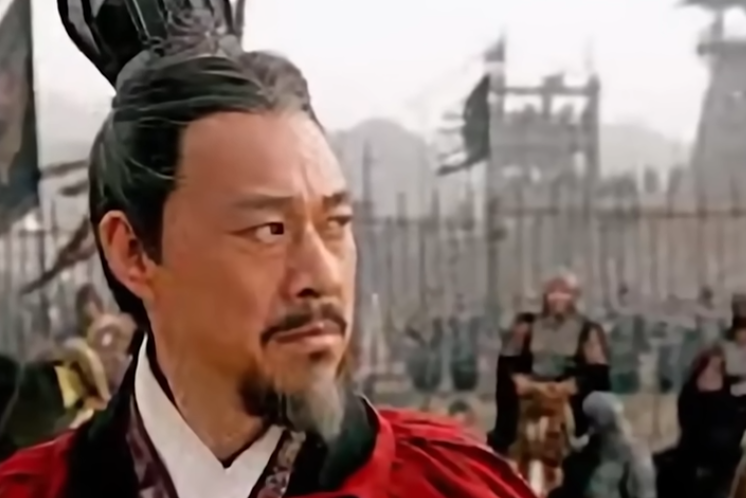
But these efforts were in vain. After Emperor Xian of Han abdicated, Fu Shou was also demoted to a commoner and lived under the control of the Wei dynasty. Her story is a testament to the tragic fate of women in chaotic times. Another very important figure was Sima Yi, an advisor to Cao Pi at the time of the Han dynasty's collapse. Sima Yi later became one of the most powerful figures of the Three Kingdoms period, laying the foundation for the Jin dynasty to unify China in 280. In 220, at the time of the Han dynasty's collapse, Sima Yi played a crucial role in persuading Cao Pi to overthrow the Han dynasty, and he was regarded as one of the most brilliant strategic minds of the time.
